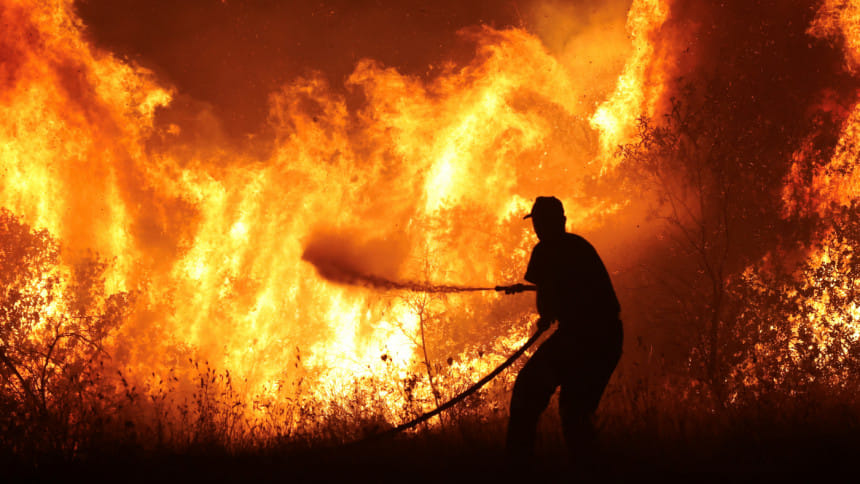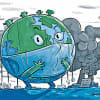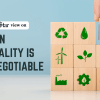Enter ‘global boiling’

July was the hottest month ever recorded on our planet. It marks a clear turning point from the previous era of talking about global warming as something that will happen in the future to recognising that it is happening already. This is evident all over the globe; from heat waves in North America and southern Europe, to floods in China and India, to wildfires in Greece (which caused thousands of tourists to be evacuated).
The Secretary-General of the United Nations, Antonio Guterres, recently declared, "The era of global warming has ended; the era of global boiling has arrived." This is likely an allusion to the proverbial frogs swimming in a pot of water that is being heated so that the frogs are boiled and die without ever realising what is happening. But we humans are not frogs and can indeed tell when the temperature of our surroundings has gone up too high. In response, we need to take emergency actions.
Firstly, the leaders of countries need to recognise the emergency and take necessary measures to tackle the problem by pivoting to a business-unusual approach nationally and collectively.
This means taking immediate actions to help global citizens who are suffering from the adverse impacts of severe weather events around the world and from slow onset events such as sea-level rise. While each government is primarily responsible for assisting its own citizens first, there is also a collective responsibility to help victims in the poorest countries through international solidarity-based funding, as agreed in COP27 in Egypt last year. The proposed Loss and Damage Fund must be made functional at COP28 in December. This must be the first priority for world leaders who failed to prevent the adverse impacts due to their prior inaction in implementing what they had agreed to do in the Paris Agreement in 2015.
The second most urgent action needed is for developed countries to fulfil their promise to double the funding for adaptation activities in developing countries. This will allow the adverse impacts to be minimised and reduce the inevitable losses and damages from climate change.
The third action would be to phase out the use of fossil fuels such as coal, petroleum, and natural gas and replace them with renewable energy sources such as solar and wind. Though this transition to cleaner energy is already happening, steps must be taken to accelerate the pace of the switch. In this regard, there needs to be a moratorium on exploring for new fossil fuel reserves, as we cannot even afford to extract and burn the existing reserves. In my view, any new exploration for fossil reserves should be declared a crime against humanity. In fact, I would argue that it is a crime against our own children as they will be the ones to suffer from the consequences of this action.
The next item in the agenda would be to ban the development of any new coal mines, given that coal is the most polluting of the three aforementioned fossil fuels. This phasing out is also happening, but again not fast enough. Petroleum, which is mostly used in the transport sector, could be replaced by switching to increased usage of electric vehicles. The final fossil fuel is natural gas, which may still be a viable transition fuel for a few more years as it is the least polluting of the three.
The most important action that can catalyse our transition from fossil fuel-based economies to renewable energy-based economies is to discover new financial investment incentives, so that trillions of dollars can be shifted to investing in clean energy. This means getting rid of the most egregious subsidies that are still being given by governments to fossil fuel companies.
Finally, I would recommend for the UN secretary-general himself to appoint a special envoy for loss and damage to liaise between the United Nations Framework Convention on Climate Change, the United Nations Office for the Coordination of Humanitarian Affairs, and national governments to ensure that we no longer impose the adverse impacts of human-induced climate change on the poorest and most vulnerable citizens. This should be the moral imperative of every thinking citizen of the planet.
Dr Saleemul Huq is director of the International Centre for Climate Change and Development and a professor at Independent University, Bangladesh.


 For all latest news, follow The Daily Star's Google News channel.
For all latest news, follow The Daily Star's Google News channel. 












Comments